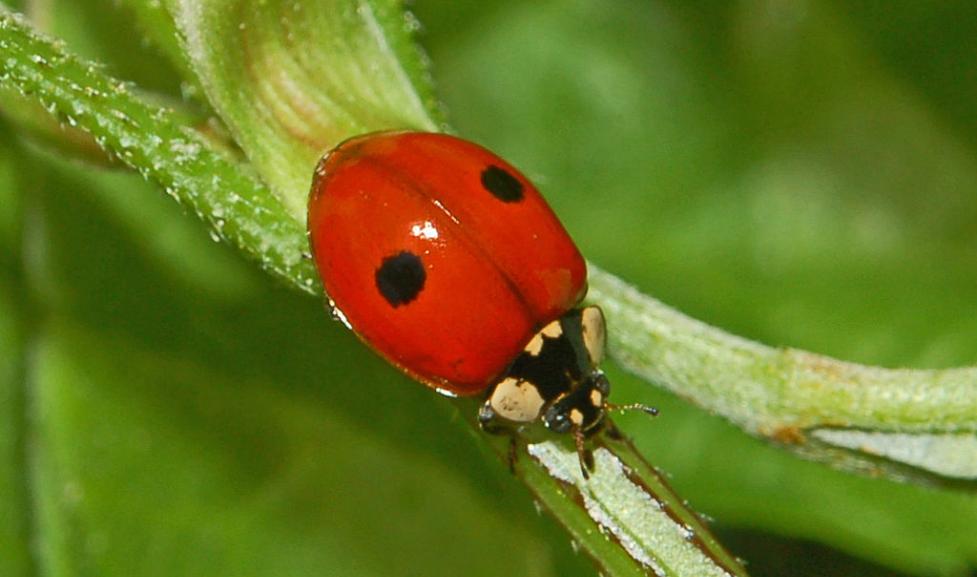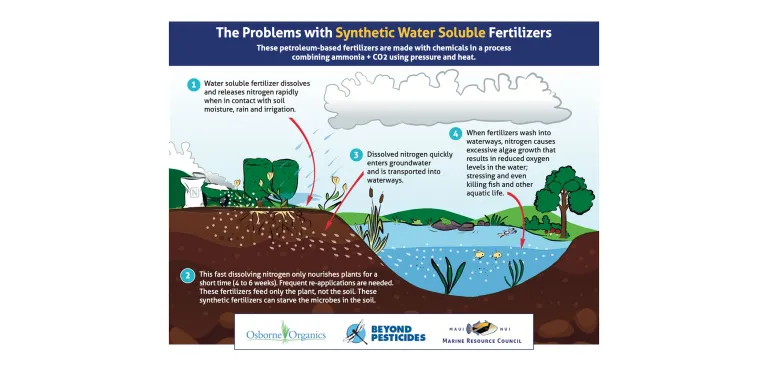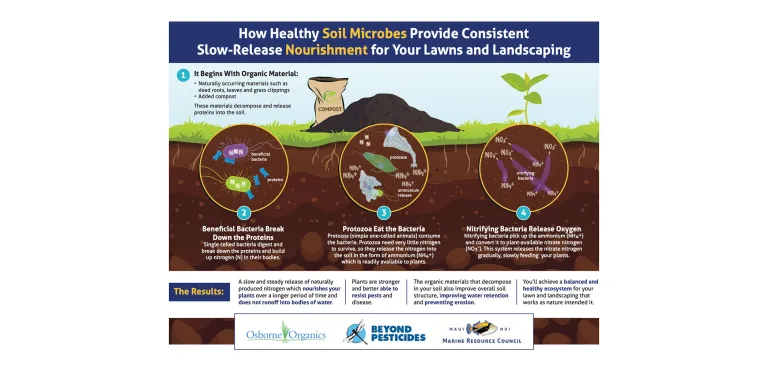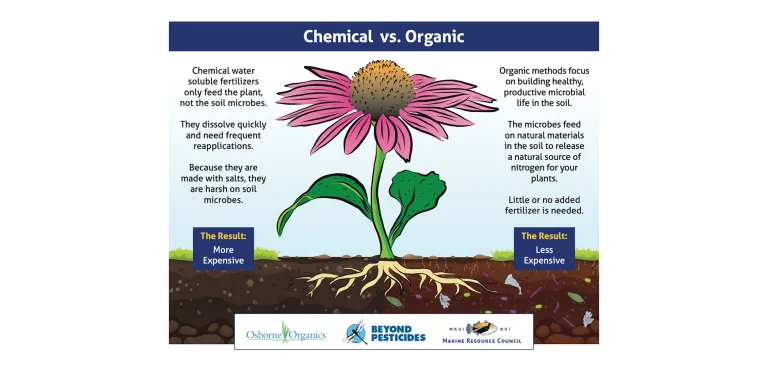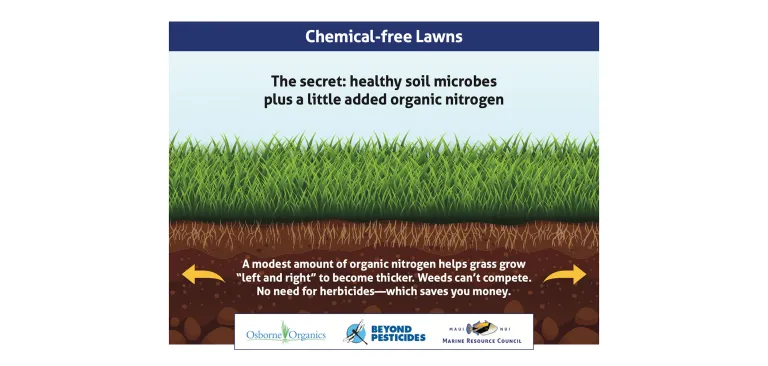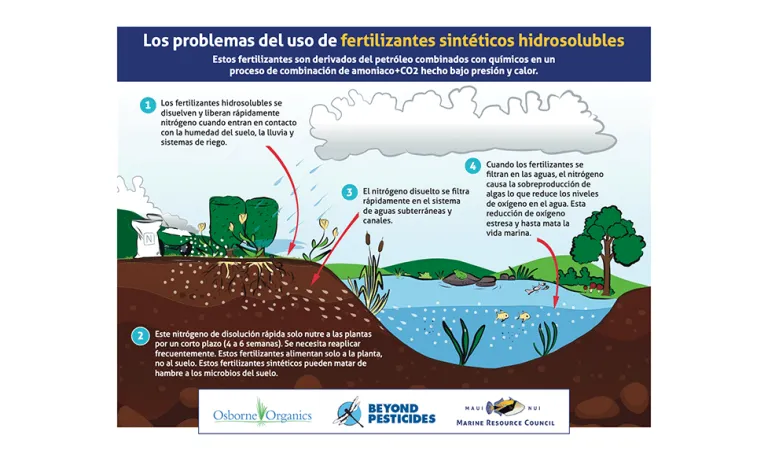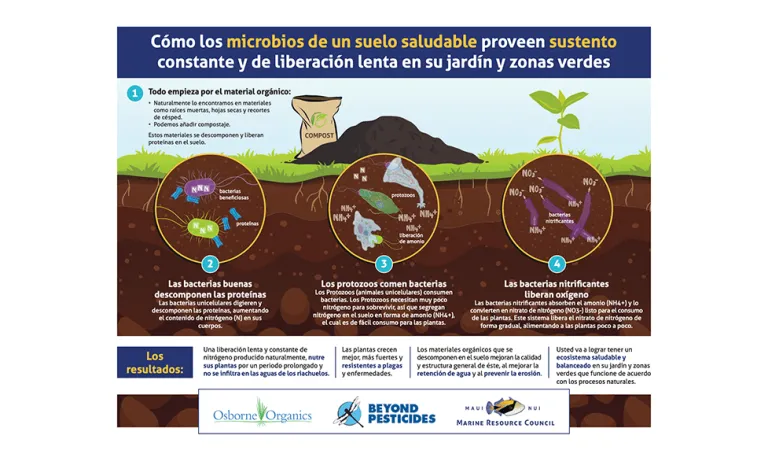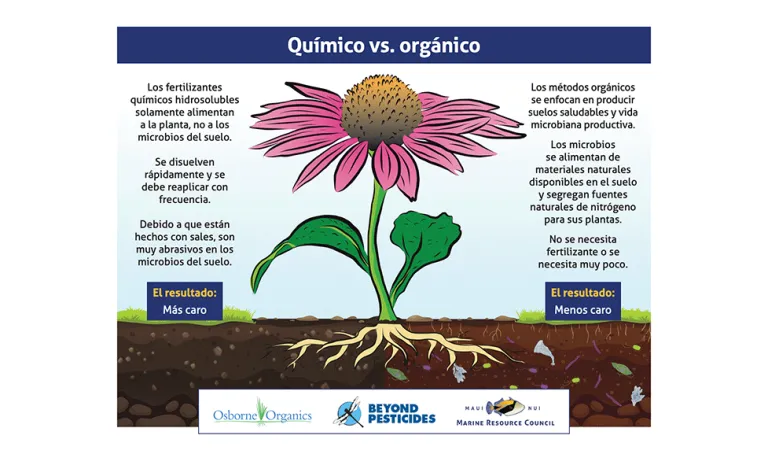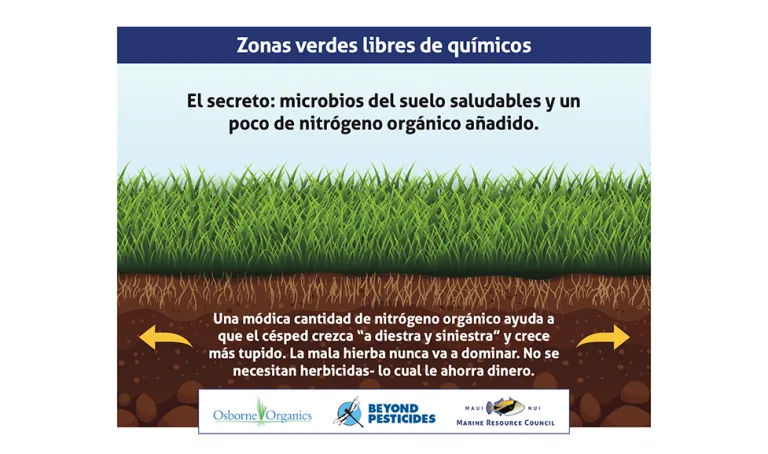It’s never been more important to manage our yards and our homes with practices that protect our children, our pets, pollinators, creeks and overall biodiversity. The world is dealing with a triple crisis from climate change, biodiversity decline and chemical contamination that is degrading ecosystems and our health. We can all make a difference by rethinking how we manage our yards and the pests in our homes.
This page will provide you with practical methods to manage your lawn organically and deal with common pests. Visit the Environmental Contaminants & Toxics webpage to learn more about pesticides. For pollinator and native plant gardening, visit Pollinator Gardens and Pathways.
Working with nature
Get started with organic lawn care
You can have a beautiful, thick and resilient lawn using organic methods. And best of all, you can provide a safer environment for your family, pets, neighbors, pollinators and wildlife. Chemically-intensive lawn management focuses on products and what you see above the ground. Organic management builds healthy soils and feeds the trillions of critters that make up a living, vibrant subterranean ecosystem that holds water, stores carbon and nourishes plants.
Synthetic fertilizer and lawn pesticides (herbicides, fungicides and insecticides) are derived from fossil fuels. From the point of extraction to the refining process to the chemical plant where they’re produced, there’s a climate, environmental and human cost - particularly to the workers and front-line communities that are exposed to the emissions, hazards and water contamination from these industrial processes. Once these chemicals are applied to our lawns, synthetic nitrogen releases nitrous oxide - a green house gas 300 times more potent than carbon dioxide - and runs off into surface water where it can contribute to algal blooms. Pesticides impact the health of the soil and living organisms in your yard and also run off into the creeks where aquatic organisms can be impacted.
You can find the Step-by-Step Guide to Organic Lawncare in both English and Spanish on People & Pollinators Action Network's website. This guides shows you how use ecologically-sound principles to manage your lawn.
The following infographics provide the basic principles of organic lawn management and how it differs from chemical management.
